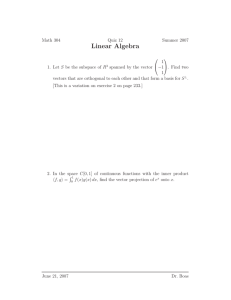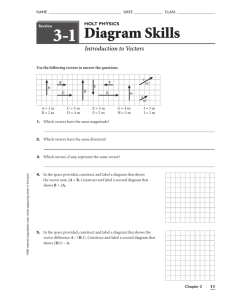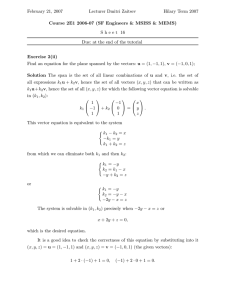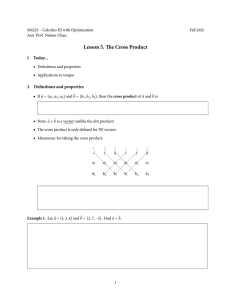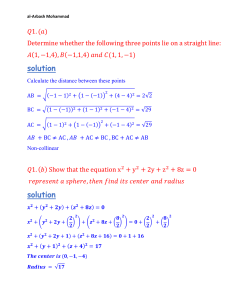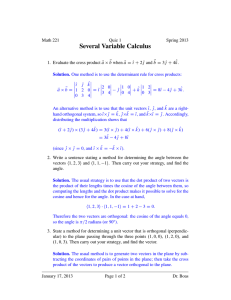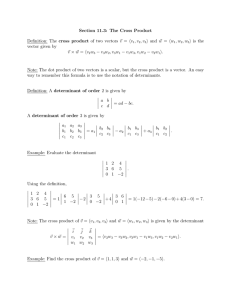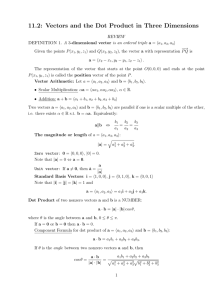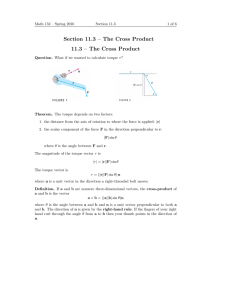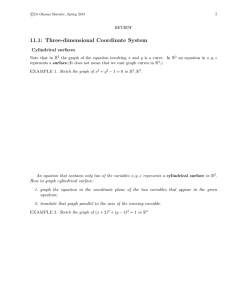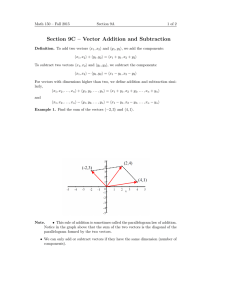1 11.3: Torque and Cross-Product
advertisement
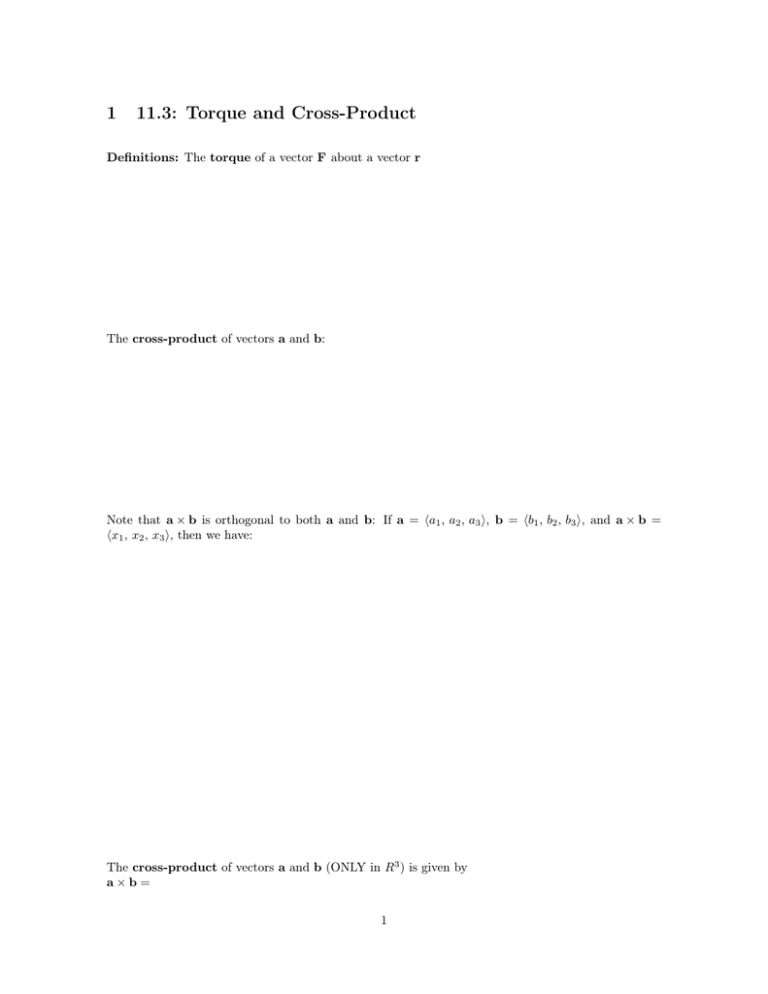
1 11.3: Torque and Cross-Product Definitions: The torque of a vector F about a vector r The cross-product of vectors a and b: Note that a × b is orthogonal to both a and b: If a = ha1 , a2 , a3 i, b = hb1 , b2 , b3 i, and a × b = hx1 , x2 , x3 i, then we have: The cross-product of vectors a and b (ONLY in R3 ) is given by a×b= 1 NOTES: 1. Simple calculation method: 2. Geometric significance: 3. |a × b| = 4. Useful Properties (all listed on p668): Examples: Find a × b if a = i − j + 2k and b = 2i − 3j − 2k 2 Given the points P (1, 1, −1), Q(2, 0, −1), and R(1, −1, 1) find a vector orthogonal to the plane containing these points. Find the area of 4P QR. 3 Find the volume of the parallelipiped whose corner is formed by the vectors a = h2, −1, 4i, b = h1, −3, 0i, and c = h3, 1, −2i. On Beyond Average: If a, b, and c are 3-dimensional vectors, determine if each of the following is a vector, a scalar, or meaningless: (a × b) · c (a · b) × c (a · b)c (a × b) × c a · (b × c) The vectors a, b, and c = b − a all lie in the same plane as shown in the diagram below: Circle all TRUE statements below: a×b=0 (a × b) · c = 0 a × b points into the page b × (a × c) points in the direction of −a 4 . .
